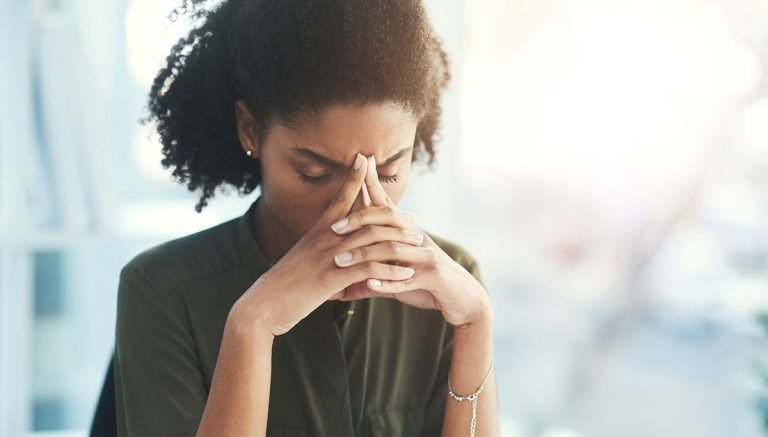Restore Deep and Restful Sleep
Do you often wake up feeling unrested? Do you feel excessively sleepy during the day? Do you feel like your brain is in a fog? During deep sleep, your body and brain accomplish a lot during sleep, including muscle repair, protein synthesis, and tissue growth. In basic terms, enough amount of deep and restful sleep is essential for our brains and bodies to recover from daily wear and tear, and is vital to maintain healthy function.
Not getting enough deep and restful sleep can affect your health, not to mention your ability to function during the day.
People who say, “You can sleep when you’re dead,” clearly don’t suffer from insomnia. If they did, they might change their tune. Sleep allows your body to rest and heal naturally. Getting a good night’s sleep leads to health benefits that are crucial to your life. Non-restorative sleep is often associated with the inability to fall asleep, wake up frequently during the night, wake up too early in the morning or experience unrefreshing sleep. Fixing non-restorative sleep can leave you refreshed and full of energy.
Wake up refreshed and full of energy. A good night’s sleep is essential for optimal body function and health. Sleep enables your body to recover, grow and repair. By getting a good night’s sleep, your body can rejuvenate. This allows you to wake up feeling refreshed, full of energy and ready to take on any adventure that awaits.
What causes lack of deep and restful sleep?
Various factors can affect the quality of a person’s sleep, such as the following factors:
- Sleep apnea
- Insomnia
- Chronic fatigue syndrome
- Leg cramps
- Lung disease
- Narcolepsy
- Lung disease
- Exploding head syndrome
People can control certain factors, such as the time they go to bed and whether they stay awake looking at their phone or reading a book. Some factors are difficult to control such as a person’s job or travel, which can negatively impact the quality of their sleep.

Factors that may cause a lack of deep sleep include:
- Shift work
- Jet lag
- Providing regular care for someone with an illness
- Having young children
- Stress and aging
- Anxiety
- Chronic pain
- Certain medications
What happens when you don’t get enough restorative sleep?
Not getting enough restful and deep sleep can affect your health in a variety of ways.
As deep sleep plays a role in memory, an insufficient amount may lead to difficulty making and maintaining memories or retaining information.
- Physically, insufficient deep sleep may decrease your immune response.
- Long-term issues with deep sleep may also drive the advancement of neurological conditions such as Alzheimer’s and Parkinson’s disease.
- Over time, poor sleep can also factor into chronic conditions like heart disease, high blood pressure, and diabetes.
- Additionally, regular non-restorative sleep can affect mental health and contribute to depression and other mental health conditions.
How to get more deep and restful sleep?
People can increase their deep sleep. Let’s look at some tips and home remedies for a better night’s sleep.
Setting aside sufficient time for overall sleep can help you get the enough deep sleep you need. By establishing consistent sleep and wake times, you can develop a healthy sleep schedule for your body. Practicing effective sleep hygiene can help you get more sleep in total.
Other practices that may promote deep sleep, and healthy sleep in general, include:
- Regular exercise, such as swimming, running, swimming, or jogging, should be done in the day rather than before bedtime.
- Make dietary changes to include fewer carbohydrates and more healthy fats.
- Warming up the body in a spa or hot sauna before sleeping.
Certain sleep habits might also promote better sleep overall, including:
- Avoid blue lights, such as smartphones or computers near bedtime
- Keep the room as dark as possible by covering windows and turning off lights from alarm clocks and other electronic devices.
- Avoid caffeine later in the day
- Avoid big meals before bedtime
- Practice stress management techniques
- Setting a sleep schedule and trying to fall asleep and wake up at consistent times
Other tips that help for fixing non-restorative sleep
- Reduce caffeine intake in the afternoon and evening
- Ensuring a quiet, cool, and dark sleep environment
- Create a relaxing routine to wind down in the evening
Learn more about sleeping better.
Summary
Getting enough deep and restful sleep has many functions, such as replenishing energy, storing memories, and balancing hormones. Practicing proper sleep hygiene and making certain lifestyle changes can help people get a better night’s sleep.
People who continue to have sleeping difficulties after improving their sleep habits should speak to a doctor.







